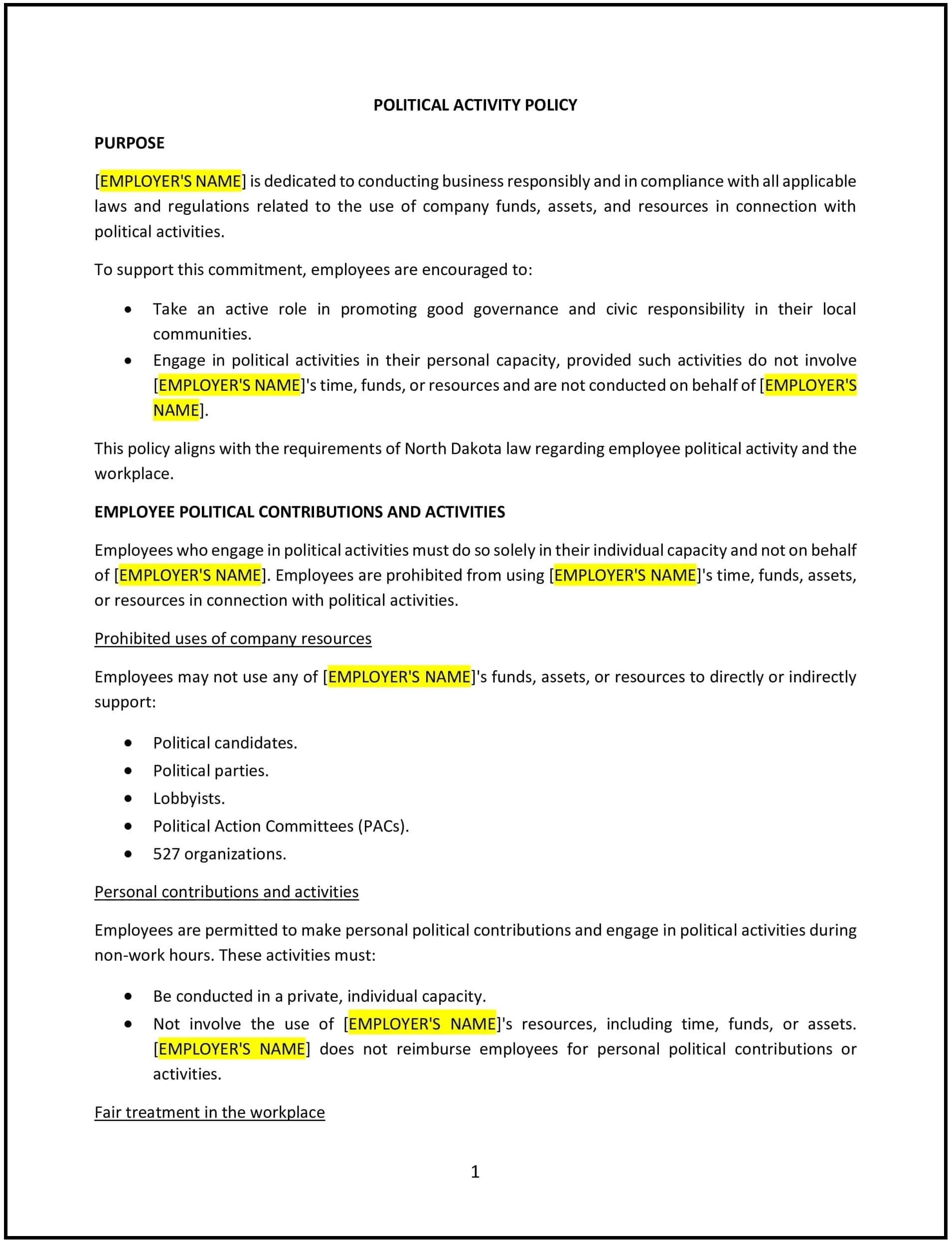Political activity policy (North Dakota): Free template
Got contracts to review? While you're here for policies, let Cobrief make contract review effortless—start your free review now.

Customize this template for free
Political activity policy (North Dakota)
This political activity policy is designed to help North Dakota businesses establish guidelines for employee participation in political activities, both during and outside of work hours. It outlines procedures for maintaining neutrality, avoiding conflicts of interest, and complying with state and federal laws.
By adopting this policy, businesses can promote fairness, protect their reputation, and strengthen compliance with legal requirements.
How to use this political activity policy (North Dakota)
- Define political activities: Clearly explain what constitutes political activities, such as campaigning, fundraising, or holding public office.
- Establish workplace guidelines: Specify whether employees can engage in political activities during work hours or using company resources.
- Address conflicts of interest: Outline steps to mitigate potential conflicts, such as prohibiting employees from using their positions to influence political outcomes.
- Set disclosure requirements: Describe whether employees must disclose political activities that may impact their roles or the business.
- Train employees: Educate staff on the policy and their responsibilities regarding political activities.
- Review and update: Assess the policy annually to ensure it aligns with evolving laws and workplace needs.
Benefits of using this political activity policy (North Dakota)
This policy offers several advantages for North Dakota businesses:
- Promotes neutrality: Ensures the business remains neutral in political matters, protecting its reputation.
- Reduces conflicts: Addresses potential conflicts of interest, fostering a fair and transparent work environment.
- Enhances compliance: Aligns with state and federal laws, such as the Hatch Act and North Dakota election laws.
- Builds trust: Demonstrates a commitment to fairness and ethical practices in political matters.
- Mitigates risks: Reduces the likelihood of legal disputes or reputational damage related to political activities.
Tips for using this political activity policy (North Dakota)
- Communicate clearly: Ensure all employees understand the policy and their responsibilities regarding political activities.
- Provide training: Educate employees on recognizing and avoiding conflicts of interest in political matters.
- Monitor compliance: Regularly review the policy to ensure adherence and address potential issues.
- Encourage transparency: Foster a culture where employees feel comfortable disclosing political activities that may impact their roles.
- Update regularly: Review the policy annually to ensure it remains effective and aligned with current laws.